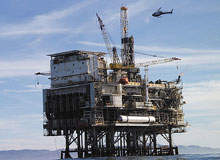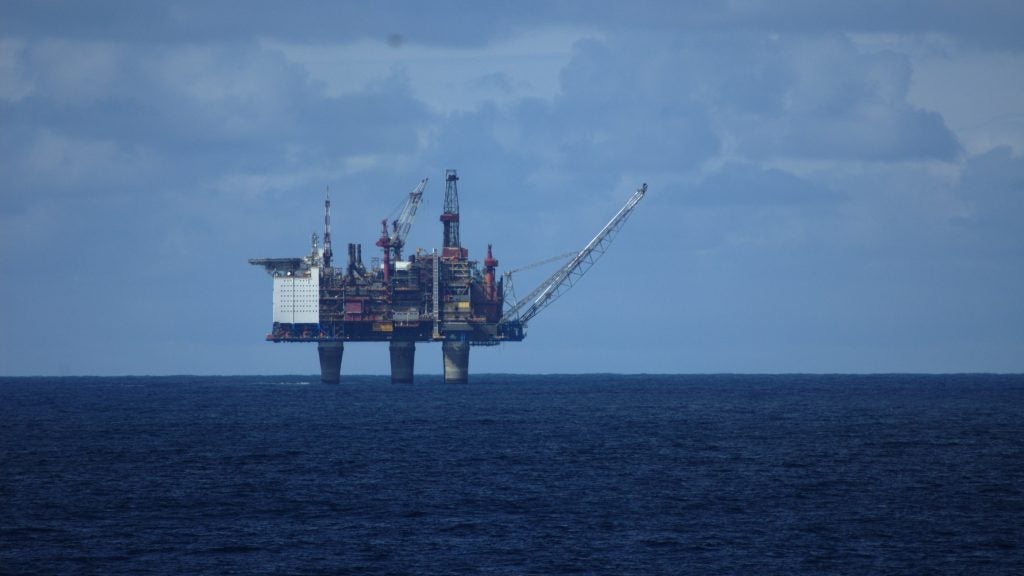
All hopes of a boom in the UK oil and gas sector may be in tatters as analysts begin to rethink their predictions for heavy investments in light of the unexpected tax increase announced in March 2011.
By May, industry heavyweights BP and Tullow Oil were warning that the higher production taxes put in place by the UK Government would deter interest in North Sea projects. Meanwhile, industry trade association Oil & Gas UK also reported a drop in confidence across the producer and contract communities due to the tax change.
The index provided the overall measure of industry confidence on a 100 point scale, with a higher rating (above 50) indicating a positive outlook and a lower rating (below 50) giving a more negative standpoint. Worryingly, the results showed that exploration and production companies have seen a 25 point decrease to 46, the lowest index recorded for the sector so far.
Speaking on Budget Day, however, UK Chancellor George Osbourne argued that the UK’s current oil and gas production is more profitable because prices are high so, “… it is fair that companies should contribute more”.
So how big an impact will the tax rise have on a multi-billion pound industry?
See Also:
Calm before the exploration storm
In February 2011, it was predicted that development plans in UK waters being considered by production companies could sustain £40bn of investment and that the rate of decline in production would be halved over the next five years.
How well do you really know your competitors?
Access the most comprehensive Company Profiles on the market, powered by GlobalData. Save hours of research. Gain competitive edge.

Thank you!
Your download email will arrive shortly
Not ready to buy yet? Download a free sample
We are confident about the unique quality of our Company Profiles. However, we want you to make the most beneficial decision for your business, so we offer a free sample that you can download by submitting the below form
By GlobalDataNew reports, however, are not expected to be as positive.
The forecast followed the 26th licensing round held in October 2010, which attracted the highest number of applications for exploration licences since the first round 40 years ago.
“This was driven by a rising oil price and a period of close engagement with the Treasury about ways to promote investment in UK oil and gas developments,” says Oil and Gas UK economics director Mike Tholen. “The Government had made a concerted effort to attract a diverse range of companies in terms of size, nationality and technical focus.”
At the time, Oil and Gas UK anticipated that investment in oil and gas projects this year would rise to £8bn, an increase of £2bn from 2010, and be sustained at that level for several years to come. Now, according to Tholen, the organisation is “… re-running its activity survey to reflect the change in confidence and investment likely to result from the unexpected tax charge”.
In its report entitled ‘Oil and Gas Reality Check 2011’, published in December 2010, Deloitte said that interest in investing in the “ageing-but-still-productive North Sea” showed no signs of slowing down. The consultancy stressed that new discoveries gave contractors renewed faith that opportunities still existed offshore UK.
These discoveries include: the Catcher field in block 28 / 9, which is estimated to have 350 million barrels of recoverable reserves; Blakeney field, located 150km east of Aberdeen, with initial indications of 60 to 100 million barrels; the Cladhan field, north-east of the Shetland Islands, which is said to hold up to 200 million barrels of oil.
A spanner in the works
With keen interest from investors, it appeared that the UK oil and gas sector had an exciting future to look forward to, until Osborne announced in his March budget that tax on offshore drilling profits would rise from 20% to 32% overnight, and already the industry is feeling the effects.
During the first week of May, UK oil and gas company BG Group said that the higher UK North Sea tax reduced its earnings by £265m and announced the temporary shutdown of two platforms because of the disappointing performance, which was also brought on my political unrest in the Middle East.
At the same time, British Gas owner Centrica also reported that its shares dropped 4% and warned that the tax increase would force it to scale down planned investments.
“Based on current estimates of the mix of profits, and reflecting the increased tax rates on UK oil and gas production, we expect the group’s effective tax rate for financial year 2011 to be around 45%,” the company said in a statement. “This equates to an increase in the tax charge of some £300m on last year. With the resultant reduced cash flow and increased fiscal uncertainty, we no longer expect to maintain the previously projected high levels of investment in the UK.”
North Sea repeats history
This is not the first time the UK Government has risen the North Sea production charge: the oil and gas industry has suffered three tax hit in the last nine years.
In 2005, then-Chancellor Gordon Brown announced that the supplementary charge on energy companies would rise to 20% from 10%, and just as they are now, energy companies reduced their plans for North Sea exploration, including oil giants such as Shell.
This time around analysts are warning that the consequences could be more severe.
“We have about eight billion barrels in discoveries in new oil and gas, and much more in undrilled prospects, all capable of securing our UK energy supplies for years to come,” said Hannon Westwood director Jim Hannon in March. “This latest move on tax take comes at a sensitive time when major capital investment is crucial.”
Tholen seconds that argument. “The chronic fiscal instability will reduce investor confidence and if past experience is anything to go by, investment will drop significantly,” he says.
Decommissioning ahead
Despite the negative outlook on North Sea oil and gas production, a significant amount of decommissioning activity is due in the coming decades, which is expected to create hundreds of jobs.
To put this into perspective, around £1bn of decommissioning expenditure is forecast annually for the UK North Sea by 2015.
Only 7% of projects are completed to date, according to offshore oil and gas decommissioning forum Decom North Sea.
To prepare for this work, both Decom and Oil and Gas UK have run several conferences and workshops, which gave UK practitioners the chance to learn from experience gained around the world.




